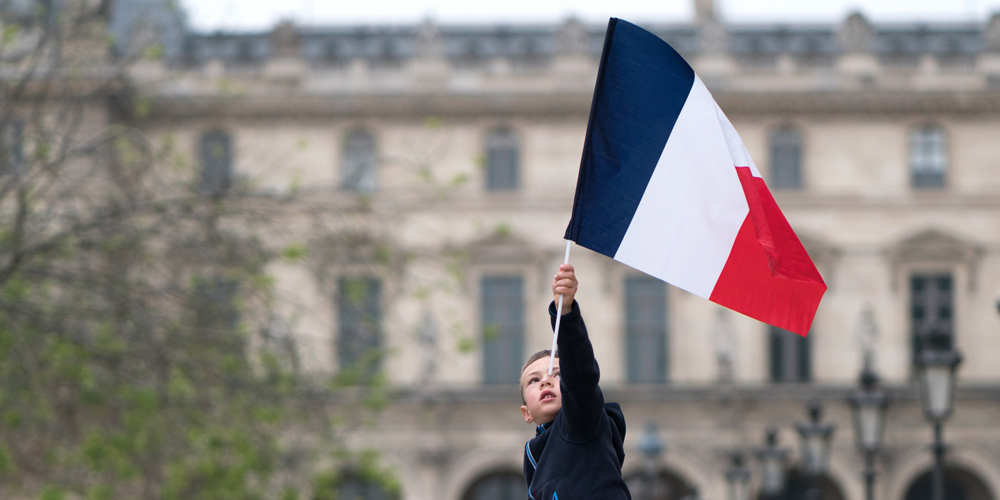Macron’s age of enlightenment
As a faithful observer of politics, my Sundays usually have a certain routine. Coffee in bed, watching the Andrew Marr Show, followed by eggs and toast and the Big Question, then more coffee and Sunday Politics. Ever since the general...
As a faithful observer of politics, my Sundays usually have a certain routine. Coffee in bed, watching the Andrew Marr Show, followed by eggs and toast and the Big Question, then more coffee and Sunday Politics. Ever since the general election in 2015, which in hindsight feels like the opening act of a Shakespearian tragedy for progressives across the globe, a new element has been added to this routine – despair. There are many reasons for this: Brexit, the election of Trump, and the ongoing self-destruction of the Labour party. Rather than strengthening my faith in politics as a power for change, staying informed has become painful civic duty.
This last Sunday was a little different. As a French citizen living abroad, I volunteered at one of the polling stations in London to witness the election of France’s next President, Emmanuel Macron. And despite a 5am start and a 16-hour day, for the first time in a long time I felt hope.
The campaign itself was of course bound up with a large degree of anxiety. A noticeable rise of both left and right populism had led many to speculate whether France was about to emulate the British folly of leaving the European Union. Before the first round, polls suggested that a run-off between Marine Le Pen and the far-left Jean-Luc Melechon was a possibility, both camps were in favour of their own “Frexit” from the EU. Melenchon’s version was “to save Europe from itself” by unilaterally ignoring every European treaty since Maastricht, thereby enforcing reform by making the EU ungovernable. This would have been an interesting approach at a high school Model-United Nations exercise but does not resemble a serious policy for one of Europe’s largest economies. Yet roughly 19 per cent of voters backed him in the first round.
The success of Marine Le Pen, who advocates anti-immigrant, anti-European, isolationist policies, and whose party continues to be tainted by Holocaust denial is even more worrying. 22 per cent voted her into the second round, and roughly 11 million voters chose to back her in Sunday’s poll.
Yet against the backdrop of three major terrorist attacks which claimed more than 230 deaths over the last two years, a stagnating economy, rising unemployment and increasing household debt, the French have chosen hope over fear.
With the world anxiously watching whether he’ll succeed, Emmanuel Macron’s task will not be easy, and expectations are high. Reforming the French labour market, reducing unemployment and reassuring a country that has felt acutely under attack since 2015 are but the beginning of the challenge. He also has to reunite the nation. Although he received over 20 million votes (Sarkozy received 19m in 2007, Hollande 18m in 2012), an unprecedented 11 million voters chose either to abstain or spoil their ballot.
And although he is deeply committed to the European Union, his desire for reform will demand that other countries move out of their comfort zone. Angela Merkel or Martin Schulz will find him a formidable yet challenging partner, most notably on the role of the European Central Bank and restructuring European debt. It will be a miracle indeed if he convinces Germany to reduce its trade surplus to the benefit of the whole EU. On Brexit, he will be pragmatic, but Theresa May should expect no favours. Macron will work towards making Paris a more attractive place for firms to business – where necessary, at the cost of the UK.
In this closely linked world we live in, Emmanuel Macron election as France’s next president not only matters to France, but it stands as a symbol of hope for progressives across Europe. It is also a reminder to progressives in the UK of how to win elections.
Macron’s movement En Marche was formed only a year ago to branch the divide between the left and right. He realized that ideas, not party political associations, are at the heart of success, and chose to bring progressives from all sides together. In the UK, where coalitions are deeply mistrusted and party loyalties are strong, such a notion might seem doomed to failure. Here, the idea of creating a new progressive party is often dismissed by pointing to the failure of the SDP in the 1980s.
Yet only today leading politicians in France, including former prime minister Manuel Valls and former presidential candidate Bruno Le Maire declared their intention to run under the En Marche ticket in the upcoming legislative elections. Perhaps the French have, after two centuries, rediscovered the key to political enlightenment.
Macron won because at a time of rising populism across the globe, he has the courage to be complex. Yet his message is clear: yes to Europe, yes to reform, no to the binaries of the old party political system. He proves that populism, both from the left and the right, can be fought and conquered by moving to the centre. The threat of the far right has not been defeated, but thanks to En Marche, openness and international cooperation live to fight another day. And for the first time in a while, we can turn to France with hope. Fellow progressives in the UK should be watching closely.

